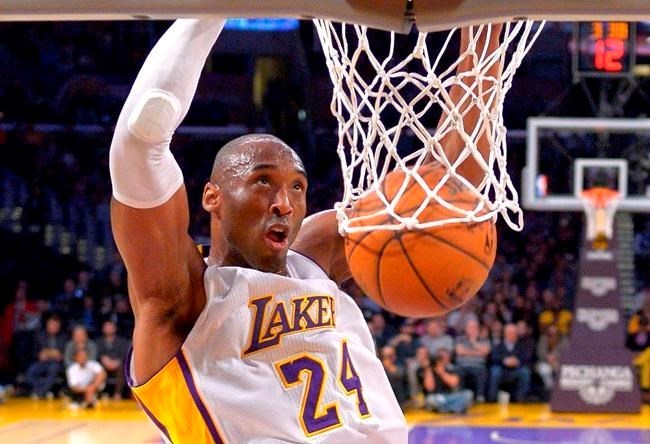By now we have all heard about the tragic death of Kobe Bryant, his 13-year-old daughter, and the lesser-known but equally important other seven passengers onboard a helicopter that crashed in California early on Sunday, Jan 26, 2020.
Before that news broke, I had spent the majority of the weekend watching my 13-year-old play in a Grade 8 basketball tournament. Just like the parents on that helicopter, we travelled around, cheering on our child on from the stands, rejoicing in their wins and commiserating in their losses.
The consideration of living a very parallel reality with the people who perished in that crash really made those deaths hit home for me, and for our kids who have been deeply immersed in the world of basketball and felt the shock of the event in the same way the rest of us did as it reverberated around the world.
Although Kobe Bryant’s life had no more value than any other person who died under any circumstances around the world on that day, he is a legend in the game of basketball and his skills were well-beyond disrepute. His name is being more prevalently discussed than others right now because, like it or not, he was a celebrity of giant proportions and that makes his death appropriate for the attention it is receiving.
While the merits of Kobe Bryant’s game and the deficiencies of his character have been widely penned and discussed throughout the internet over the last 24 hours, I was left wondering, “How do I talk to my children about the whole truth of this?”
With three youths who play/have played basketball and a house full of devoted NBA fans, the death of Kobe Bryant is a conversation that is unavoidable, but it’s also an opportunity.
The reality of the full picture of who Kobe Bryant needs to be remembered as we approach the memory of this legend in our homes with our children. Although not convicted, much in the way that it is commonly accepted that OJ Simpson did indeed commit the crimes he was accused of (i.e. killing his wife), it is equally as understood that Kobe was also fairly equated with the crimes of which he was accused of (i.e. raping a teenager), and that reality does not change because he died suddenly and tragically.
We can walk our children through the shock and/or grief of an extraordinary athlete, loved husband and devoted father while still ensuring that we do not condone a gold-plated immortalization of a man who was as flawed and fallen as any other, and accountable for more than most.
If we fail to educate our children about the whole truth of who Kobe Bryant was, we run the risk of white-washing the consequences of his terrible actions. Our kids must know how to share the space of those they venerate with juxtaposed feelings; both impressive athletic achievements and profound personal failings. They must know the realities of those they idolize so that they can choose wisely when deciding characteristics they emulate.
When our teenage sons and daughters come to us hours after Kobe’s death and say, “I want to buy a Kobe jersey,” or when they post, “Kobe is my hero! RIP to an incredible example!” on their Instagram stories without the full picture of who he was, what do we say?
Do we teach them that they can love the game but should challenge unhealthy aspects of the culture? Do we tell them they can learn from the talent while rejecting the choices? Or do we become complicit in a culture that tells our kids that talent trumps integrity by allowing them to idolize the shinier pieces of a man’s story because it’s easier, sexier and more popular than giving them the whole, flawed picture.
We need to take a moment to help our kids consider the content of the character of their heroes, as well as their skills, before they wear their names upon their backs and imitate them with their lives; we do not need to trash the champion, but we have a burden to tell the truth.
Like much of parenting, these moments are hard but necessary.
We only stop cycles of shame when we become honest about who our examples are as fully realized people. We need to talk about the shadowy side of humanity with our children to begin to remove the stigma that lingers on victims while accurately remembering the talents of a man like Kobe Bryant; it’s the only way to break the cycle of the toxic cultures we see too often tolerated in professional sports while continuing to celebrate the game.
Let’s agree to tell our kids the comprehensive truth about Kobe Bryant: he was an incredible athlete, he was very likely a rapist, he was a dad taking his daughter to her basketball game and the death of each of those people was tragic.
Let’s tell our kids that life can change on a dime, and every decision they make in this life matters, because it’s all a part of the legacy we leave behind.
Katie Neustaeter is a professional writer with a background in broadcasting and owner of Refraction Communications. Katie is also a multiple Kamloops Readers Choice award winner in categories including Influencer, Volunteer and Personality. She also really loves candy. As a community advocate who is passionately engaged in her region, Katie explores a wide range of topics in her column Refraction with the purpose of promoting healthy public discourse.




